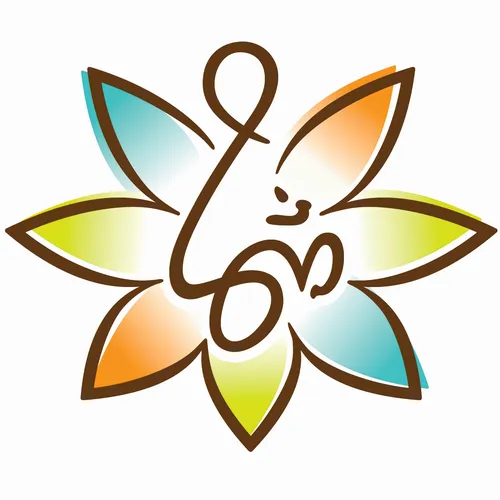
Thinking about It
Do you ever stop and think about why you do what you do everyday?
Australian psychologist turned Hindu Monk, Swamini Supriyananda, provides insightful answers to your contemporary questions and challenges. Her captivating anecdotes, infused with the philosophies of the ancient Hindu teachings, are guaranteed to inspire us to think about it!
- Update frequency
- every 4 days
- Average duration
- 10 minutes
- Episodes
- 337
- Years Active
- 2014 - 2025

Self-Unfoldment - Success, In and Out
Success can be achieved in the world both outside and inside. We successfully explore and understand the world outside at large, like via science, economics, or politics. Conversely, we find success …

Self-Unfoldment - What is Success?
For each one of us, success is the ability to be found within and brought out in efficient action, skill, or knowledge. Using religion to turn inwards, we can find that latent potential before awaken…

Self-Unfoldment - A Manual, For You
Hinduism and our scriptures are kept alive by relevant reinterpretations that are applicable to us, our temperaments, and our lives. One of such redone works is “The Manual of Self-Unfoldment”, autho…

On the Way - Just A Thought
Our tapas is practiced all day long and the greatest tapas is the remembrance of our divine nature – “I am Sat. I am Chit. I am Ananda.” We’re not only intellectually understanding this, but also, re…

On the Way - Oneness in Us
Oneness is when we see that the root cause of all creation goes back to one thing, call it “an explosion in space”, “energy”, or “God”. It is all-pervading, and as this divinity, I am all-pervading. …

On the Way - At His Feet
Enlightenment is not something to be achieved, but to be experienced within. We must give up all that is keeping us away from the core of our personality. Put everything at His feet and offer every l…

On the Way - Fairytales
Consciousness is “Chit”, the brilliant light of knowledge, enabling us to see and know. Even more beautiful is we are this light that already understands and can infinitely know. Chit is also enliven…

On the Way - Which Am I?
Our likes, dislikes, beliefs, memories, judgements, and often negative self-descriptions all add up to become who we believe ourselves to be. But there is another ‘I’ thought free from all these limi…

On the Way - Thoughts About Me
So often, we look to the world for answers to our questions and it echoes back to us what we already think and feel. This is because our Idam thoughts rest on the substratum of the Aham. The entirety…

On the Way - What Am I Thinking?
Our thoughts can be divided into 2 categories – Idam Vritti or Aham Vritti. In Aham Vritti, we have and identify with “i” thoughts, producing “I am” as related to our limited egocentric personality. …

On the Way - The Path of Knowledge
The focus of all paths is slightly different. Gyaana Yoga is understanding “who we are”. We start with understanding what we want to do in life and how to do it. Then more importantly, we understand …

On the Way - Who am I?
We all have created for ourselves the ‘i” or the personality layer. Made of traits, belief systems and social conditions, it is a barrier separating my individual entity from the world. In oneness, i…

On the Way - Oneness
Oneness is the essence, goal, and truth of spirituality. When we are one integrated whole, we interact with the world and our relationships with beauty of character, joy, and love. Conversely, confli…

On the Way - Functions and Emotions of the Mind
The mind has many aspects. We have the essential functional aspect that is used to interact in the world. There is also the emotional aspect related to our strong desires, likes and dislikes. The min…

On the Way - Breathe!
The breath and the mind are two branches of the same tree. Pull one and the other is pulled with it. Since it is easier to regulate our breath than the mind, controlling it is a great temporary way t…

On the Way - The Path of Yoga
Yoga, meaning “to unite”, is the lesser known path to moksha and comprised of 8 steps. At every purposeful step, noble qualities are cultivated and the mind and personality are purified, aiding the s…

On the Way - All Paths Lead to…
While Karma Yoga, Bhakti Yoga or Gyaana Yoga may seem different, when being sincerely followed, they all require purity of intentions, nobility in our heart and a desire to uplift ourselves. So all p…

On the Way - The Journey of a Seeker
In Bhakti, we start by seeing ourselves as devotees who are separate from Paramatma, the Supreme Truth. We feel like small seekers constantly asking our grand creator for strength, knowledge, blessin…

On the Way - The Flow of Thoughts
The purpose of Japa is to silence the mind so that love and worship flows beautifully and smoothly towards the Lord. Constant and unbroken, all thoughts stay focused on the mantra and committed to th…

On the Way - What is Japa?
Japa is the repetition of a mantra while constantly and continuously thinking of the higher. Various Japa practices exist to help us concentrate as our mind experiences different moods. Although subt…